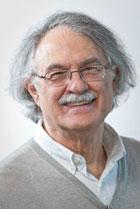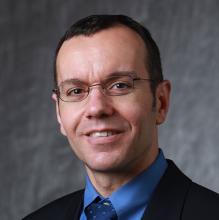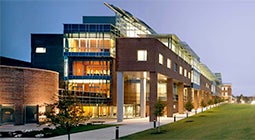
Working at the molecular level to understand fundamental molecular structures, CBIS researchers are looking at ways to revolutionize the way we produce and use materials with minimal environmental impact. Our scientists are conducting foundational investigations, such as engineering structural matrices, synthetic membrane materials and processes for their creation, identifying the best chemicals and biocatalysts to synthesize next-generation health solutions, engineering peptides as novel drugs and carriers, and synthesizing silk-inspired macromolecules.
Faculty

Institute Professor of Chemical and Biological Engineering, Member, National Academy of Engineering





Dorothy and Fred Chau ʼ71 Career Development Constellation Professor in Biocatalysis and Metabolic Engineering



